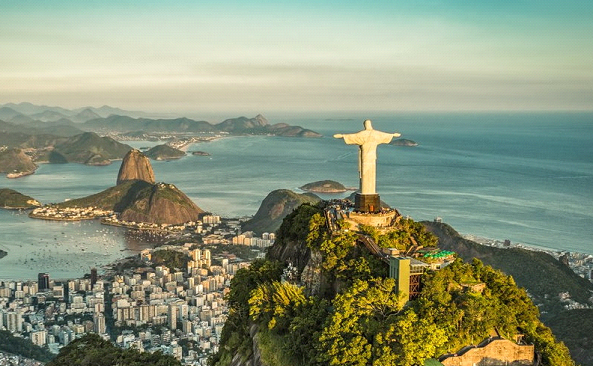Approximately 252 million people speak Portuguese, of whom 228 million speak it as their mother tongue. Brazil is the largest country that speaks Portuguese, with most of its native speakers hailing from there.
As does Mozambique, which also has a substantial Portuguese-speaking population. And Portugal itself.
Table of Contents
The 10 Countries That Speak Portuguese
According to total speaker numbers, Portuguese is the ninth most spoken language on the planet. How many people speak Portuguese?
We have mentioned a list of countries that speak portuguese. There are native speakers in Brazil, Angola, Portugal, and Mozambique, as mentioned previously, as well as Equatorial Guinea, Guinea-Bissau, Cape Verde, East Timor, and Macau.
The United States, Venezuela, Japan, South Africa, Zambia, Namibia, Namibia, and Malaysia are also home to relatively small Portuguese-speaking communities.
1 – Brazil
Portuguese is spoken in which South American country? Brazil. Its official language is Portuguese, not Spanish. In South America, only Brazil speaks Portuguese and it is home to a total of 210 million speakers.
Brazil is the largest Portuguese-speaking country in the world. Its entire population speaks Portuguese as their first language.
2 – Angola
When it comes to African countries that speak Portuguese, Angola leads the pack. Around 18 million people speak Portuguese, making it the world’s second-largest Portuguese-speaking nation.
Portuguese is spoken as a second language by many people in Angola, even though a minority of the population speaks it as their first language.
3 – Portugal
It is (obviously) Portuguese that is the national language of Portugal. It was here where the Portuguese language was born, long before travelers brought it to Brazil across the Atlantic.
The Portuguese language is spoken today in nearly all Portuguese-speaking countries. More than ten million people speak Portuguese in Portugal today.
4 – Mozambique
Looking at a map of Africa, it is interesting to see that Portugal is not the only country that speaks Portuguese. Rather, the map of Portugal and surrounding countries shows Portuguese-speaking countries dotting the African coastline; a clear nod to Portugal’s colonial past.
The Portuguese language is still spoken in Mozambique, a former Portuguese colony. The majority of the population speaks it natively, and there are around ten million native speakers.
5 – Guinea-Bissau
Guinea-Bissau has a population of just under 200,000 who speak Portuguese. They live mostly in Bissau’s capital city, in an area called ‘a Praça’ (the Square).
6 – East Timor
Despite being an official language in East Timor, Portuguese is only spoken by around 5% of the population.
Due to Indonesian rule between the years of 1966 and 2002, when East Timor gained its independence, the language was stifled in the former Portuguese colony. Today, having Portuguese spoken in the country is something of a contentious issue.
7- Equatorial Guinea
Equatorial Guinea, another African country that speaks Portuguese, adopted it in 2010. The Portuguese language is as well as Fa d’Ambô, which is Portuguese Creole.
8 – São Tomé and Príncipe
So Tomé and Principe, an island nation off the coast of West Africa, has Portuguese as its official language, and 98.4% of the population speaks it.
9 – Cape Verde
More than 500,000 people speak Portuguese, which is the official language of Cape Verde. Despite this, the mother tongue of nearly all Cape Verdeans is the Portuguese-based creole Kriolu (Cape Verdean Creole).
10 – Non-Sovereign States
The language is not only spoken in countries that have the Portuguese language as their official language, but also in numerous other countries around the world. Before I look at the differences between the various types of Portuguese, I would like to look at a couple of them.
11 – Macau
Approximately 12,000 native Portuguese speakers live in Macau. A great deal of the Portuguese language was spread throughout Africa, Asia, and the Americas during the Portuguese colonies of the 15th and 16th centuries.
The Portuguese language was used by local officials and Europeans of all nationalities to facilitate communication.
The Portuguese language was also used by Roman Catholic missionaries in Asia, and parts of India, Sri Lanka, Malaysia, and Indonesia still retain a Portuguese cultural presence.
The modern Portuguese language developed from Galician-Portuguese, also known as Old Portuguese, which is split into Galician and Portuguese today.
In spite of the fact that they are separate languages, Galician and Portuguese sound very similar, with some saying that the difference between the two is akin to the difference between American and British English.












